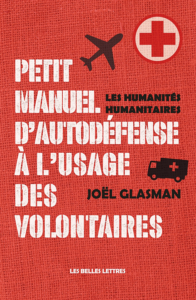
Is this book a veteran aid worker’s memoir? Or is it a tract criticising the flaws of a humanitarian sector that has become competitive and is now the subject of many injunctions? It is neither. The author’s words are the deep marks left on a man who entered the humanitarian sector early on and began at the bottom. As a novice, he improvised as a logistics coordinator thrown straight into the most unpredictable of zones: Mogadishu at the mercy of rival militias in the early 1990s – in a Somalia ravaged by war and famine. The foreign forces sent to bring order back to the country re-embarked pathetically while a media gesture, a bag of rice on the shoulder,[1]Allusion to the media gesture of the French Minister of Health and famous “French doctor”, Bernard Kouchner, who carried a bag of rice in a humanitarian operation in 1992 in Somalia. contributed to an equally grotesque and derisory memory.
The humanitarian agency that recruited this young volunteer in search of meaning was the only foreign organisation that carried on working hard, alongside the International Committee of the Red Cross (ICRC). You can easily recognise the agency behind the pseudonym used. Yet the author does not write as its historiographer. He seeks to recount the adventures of a group of workers who were left to their own devices, but were determined to accomplish their mission.
He landed without any instructions or special procedures. He was in charge of providing vital resources for medical workers, premises for security, and equipment for supplies. His job was poorly defined. It required resourcefulness and diplomacy. Each instant was about making commitments to all those involved in the assignment. And he had to liaise with anyone who had the slightest authority or connections.
The author shares his doubts and emotions masterfully. But he also moves us with flashes of humanity that outshine the violence. After recounting his experiences of Mogadishu and the hinterland camps where survivors of the fighting and famine ended up, the writer takes us further inland: to Uganda at a time after Idi Amin Dada’s dictatorship but when the cruelty he brought still reined. This inhumanity is defied by the same borderless aid workers. Next, we are taken to the armed struggle between Ethiopia’s Tigray province and the Derg of Addis Ababa. This was a frustrating experience alongside a rebel movement that was well structured politically but dehumanised. From the heart of the Tigray People’s Liberation Front, the author questions our certainties about the role given to humanitarian aid in the thick of conflicts.
This chronicle carries us back to a period that does not feel so long ago: the regions, challenges and behaviour it concerns have not changed much since then. But perhaps above all, the narrator reveals his compelling talent as a wordsmith – beyond travel journals and declamatory accounts. He never avoids lambasting his own urges, touching on the crutches of music, drugs and alcohol. This so-called lightness of humanitarian work is the dignity of these unknown heroes going into battle armed with nothing but their humanity. Welcome to reality.
Translated from the French by Thomas Young


